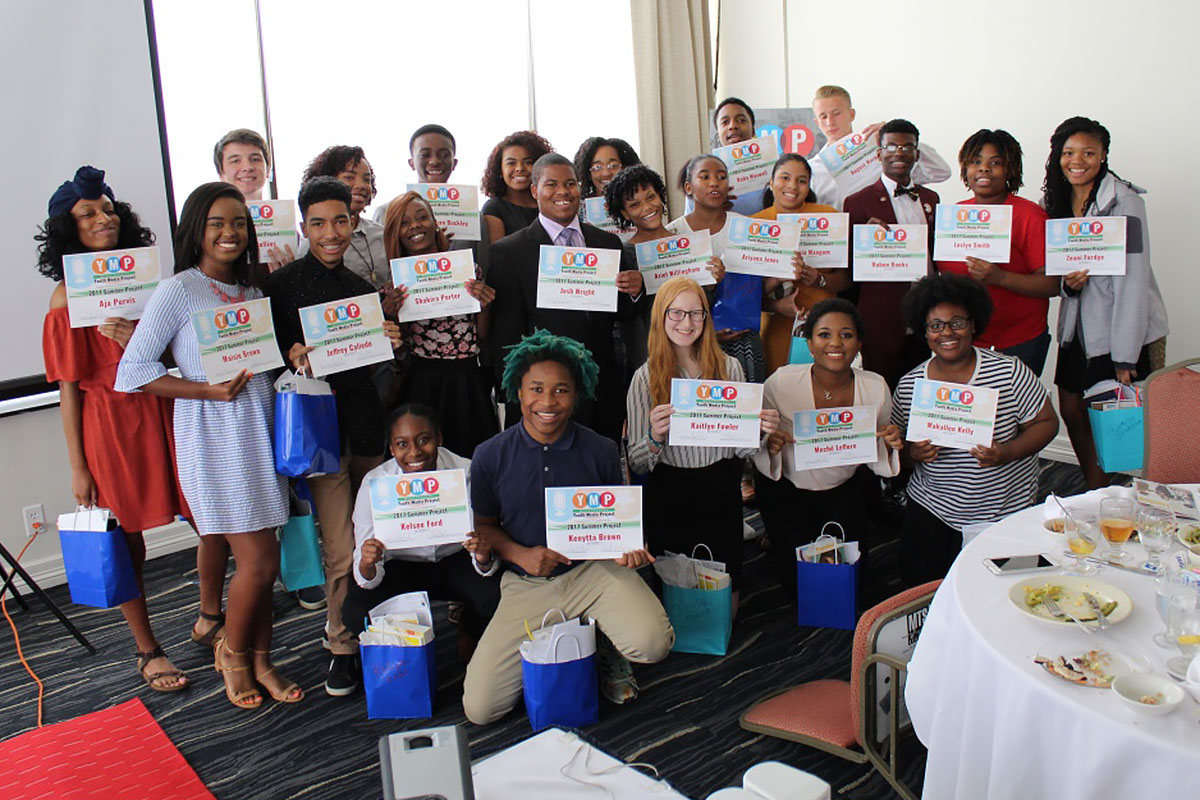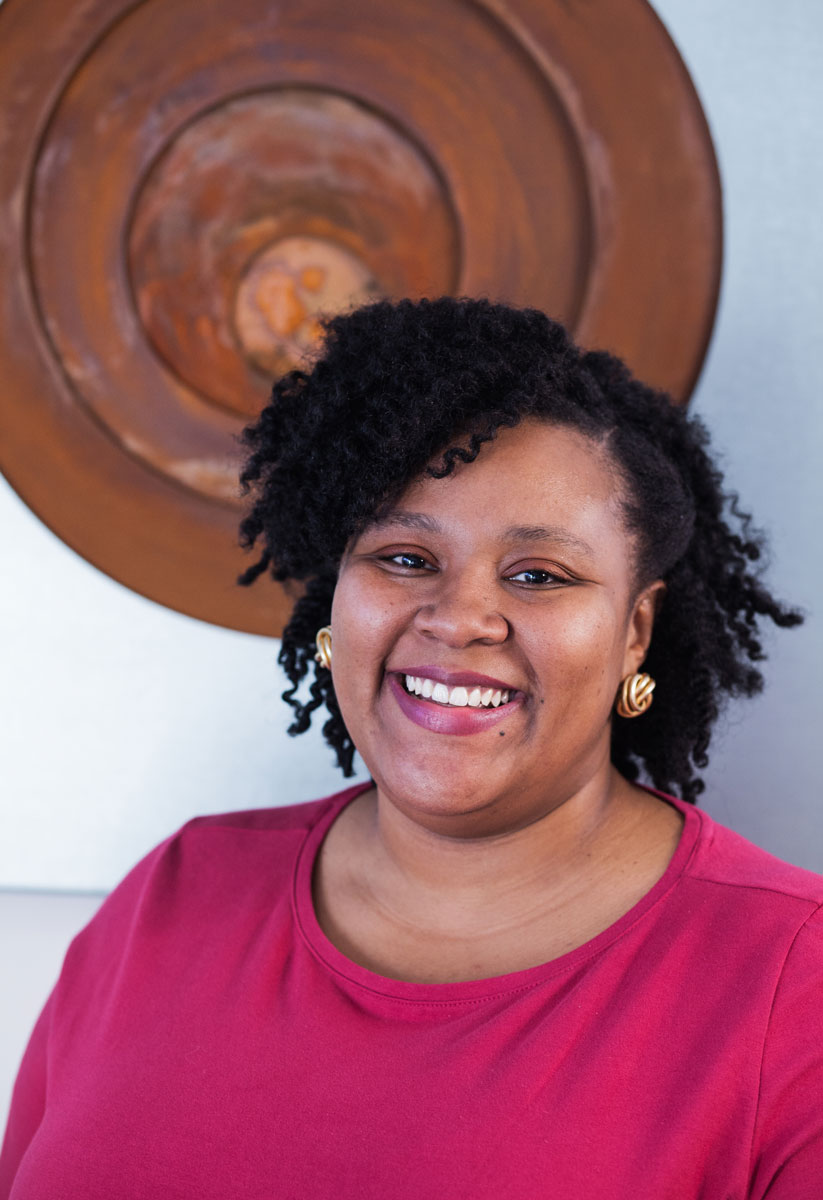JACKSON, Miss.—As I write today, I am looking for the words to offer a high school classmate who lost her 15-year-old, 10th-grade son to gun violence here in my hometown. I am digging for the words to offer his younger brother—a student at the middle school where I teach—his former classmates and teachers (my teammates) as a condolence, a comfort, a reassurance.
But y’all. Listen. I am coming up blank. So I turned to this piece to attempt to give voice to our need as a community, as a collective, as a city and a state, to encourage each of you to reflect and lean into our full-circle moments. It is in these times that we not only liberate ourselves from the negative experiences, but can help to change the circumstances that caused those experiences in the first place. Right now. As it’s happening.
Lived experiences define who we are in the present, how we respond to adversity—and they dictate who we will be. As I reflect on my life in Jackson, Miss., I can feel pure joy from memories of block parties in J.C. Park on simmering summer days. Oh! I can hear the roar of boxed Chevys and Impalas creeping around the park. I can taste the syrupy goodness from the Tigerblood-flavored snowball from the red snowball truck. I can feel the movements of the dance battles by little girls who aspire to be Ranerettes for Lanier High School when they grow up. I can hear Bailey Avenue traffic ebbing and flowing as a backdrop to our realities, seemingly oblivious to the memories being etched in each of our hearts.
‘What Do We Do Now?’
My lived experiences as a longtime Jacksonian have, at times, weighed me down. I have felt deep, tragic loss and failure, both personally and as a citizen of my beloved city. I’ve lost family members, and we’ve all lost neighborhood heroes and friends due to gun violence or over-incarceration of Black men. We watch our city’s crumbling and outdated infrastructure fail her most loyal and dedicated citizens. As a Jacksonian I grieve—and carry with me as experiences—the decay of historic buildings, the closing of local businesses. It is all loss.
The more recent tragedies of gun violence and social injustice force me to think of who I was and what I was doing as a 15-year-old 10th-grader. In the same neighborhood where all that nostalgia was embedded into my heart and mind, there was the unraveling of a solid community due to the impact of the war on drugs. There was violence and death. There were longtime friends moving away to and for better neighborhoods and the draw of “better schools.”
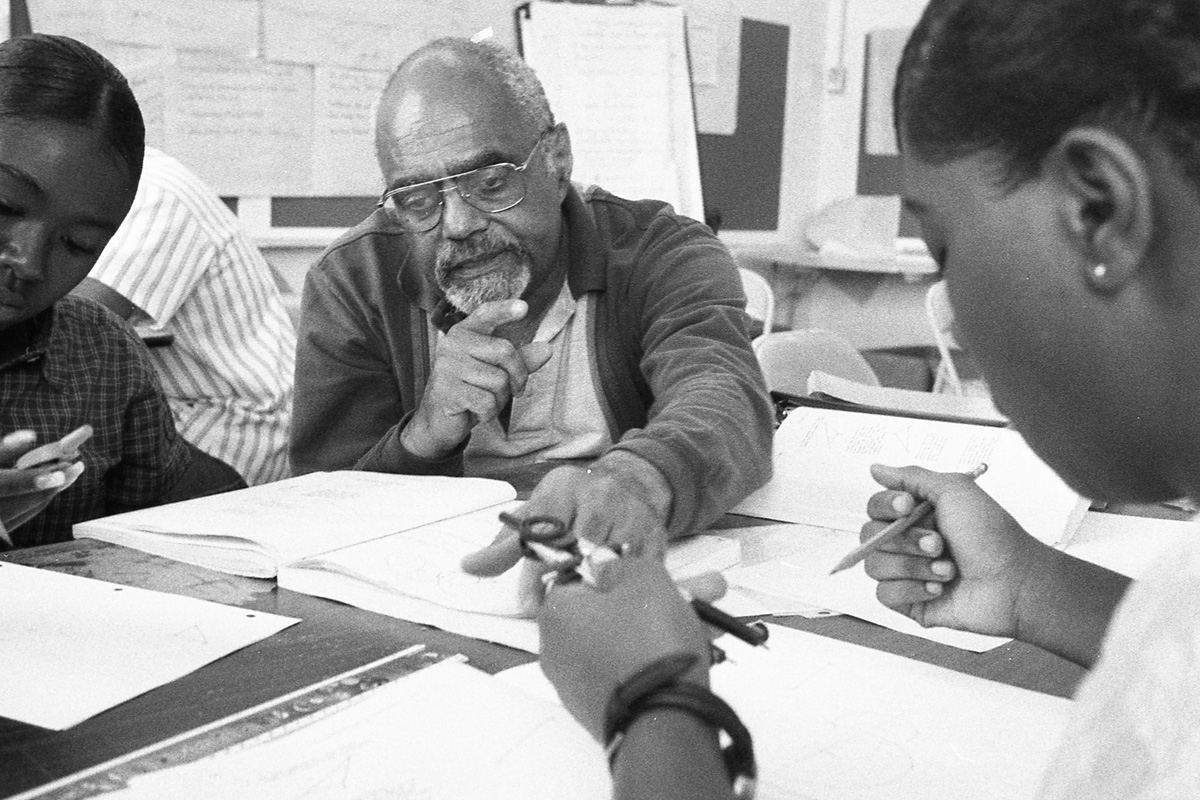
I am forced to feel and grieve this life cut short as if it were my own, or my sister’s, because I know all too well that it could have been me. I began my life in community advocacy at Lanier High School in the early 2000s. As a member of the My Mississippi Eyes Project, I sat at the feet of great educators and former civil-rights leaders, like Dr. Robert P. (Bob) Moses, and learned the importance of history, education and young people’s voices. Every time I heard Dr. Moses teach and speak, whether it was about algebra, or civil rights, or the constitution, I felt compelled to do more.
Sometimes, the elders would talk, we would listen, and then they would leave. I can remember asking myself, “What do we do now? Why did they tell us about the school-to-prison pipeline or present-day school segregation or other instances of civil-rights injustices in the South and beyond? Why aren’t they telling us what to do to fix it?”
The Will To Be a Change Leader
In those moments, my desire to be an advocate for change and solutions would lead me to the middle of the room with chart paper and markers, or to a microphone during a town hall meeting, to call out unfair media attention toward my community or school. Most importantly, I would leave with a will to “do.” The will to be a change leader in my community has never weakened since that time.
When I entered the classroom as an English teacher in the Mississippi Delta, I knew I wanted to leave a lasting impression on my students and the school community that I served. I feel that I did that, having led students to complete many projects where they advocated for their needs as students in a district struggling to just keep teachers in the classroom. I am reassured of this impact with graduation invites, DMs on social media to catch up, and now invitations to life’s most joyous occasions such as baby showers and weddings.
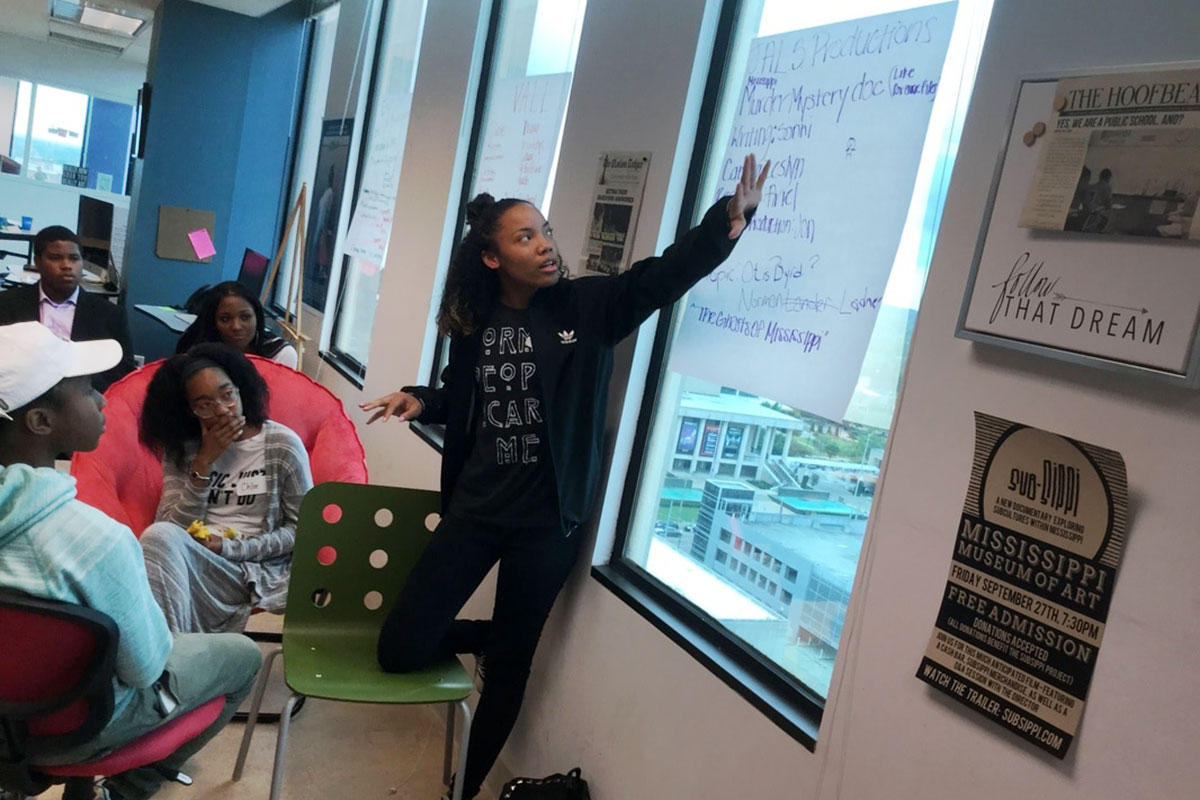
As a teacher in rural Hinds County, my advocacy showed up as I coordinated Black History programs that honored local heroes, and supported students, of all races, in leading the research, work and production of the celebrations. As I moved into a new career as a nonprofit executive, I worked hard to help create a community where Black women and girls were empowered, uplifted and most importantly supported. Advocacy has proven to be a true part of who my lived experiences have created me to be.
So here I am. Full circle, sun in my face, a charge for change in my heart, preparing to relaunch the Mississippi Youth Media Project in what we’re calling Equity Summer 2023. I first worked with the Jackson Free Press as an editorial intern after its co-founder and editor Donna Ladd had invited me to do spoken word and speak about media at one of those fiery town hall meetings in 2004—this one for the 50th anniversary of Brown vs. Board of Education—as a high school student.
Since then, I have worked alongside Donna throughout the years in many capacities, and in our most current iteration, we are eager to join forces, less as mentor/mentee now and more as change partners as we’ve planned the return of the Mississippi Youth Media Project together.
YMP: The Voice of the Street
This summer’s work is important to me on a personal level, because I live to recreate those moments I felt as a 10th grader for young people today. This summer will not be about keeping young people “off the streets.” For me it is about them being the voice of the street during a time when so many around them are relentlessly trying to silence them, hide their experiences and ignore their needs. This summer, we aim to give young people the tools and resources they need to amplify their lived experiences, history’s impact on where they stand today, and the promise they have as leaders of the future.
On hiatus since before the pandemic, YMP had its own newsroom next door to the Jackson Free Press for three summers doing impactful, rigorous, solutions-focused work—and telling the stories of young people across the Jackson metro that more adults need to hear. Now, YMP shares the hybrid newsroom of the nonprofit Mississippi Free Press, which acquired JFP assets last year. Our nonprofit, the Mississippi Journalism and Education Group, will manage YMP as well as the MFP. The Community Foundation for Mississippi with funding from the W.K. Kellogg Foundation is the project’s major supporter as we relaunch.
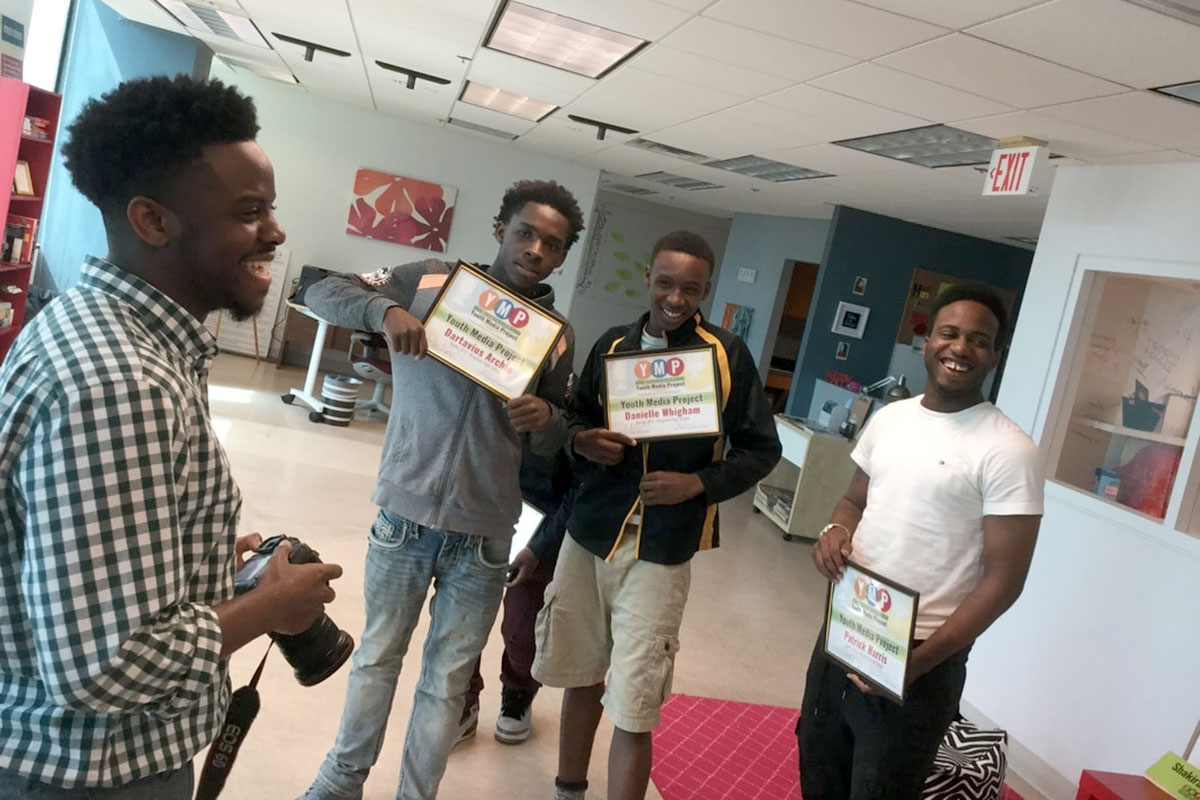
Even more exciting, this summer YMP will play a pivotal role in the July launch of MFP’s Education Equity Solutions Lab, with new reporter (and long-time educator) Torsheta Jackson as the lead reporter. This means that teenage journalists will work directly with professionals at the MFP—from Donna to Torsheta to other journalists and team members—to research, report, write, visualize and launch a systemic-reporting project that covers public education in a way it’s never been covered in Mississippi—a ground-up look at education inequity and the reasons for it, as well as potential solutions.
YMP students will host at least one solution circle in Jackson this summer about education equity. In fact, they planned the original “solution circles” that the MFP now does regularly. Their “youth crime forums” introduced the dialogue circle system the MFP now uses, as well as train news outlets across the country to use.
This summer’s YMP students will learn writing, reporting, interviewing, data gathering, videography, photography, podcasting, music production, project management, systems analysis and entrepreneurial/nonprofit planning on the 13th floor of Capital Towers in downtown Jackson. The views are fantastic, and the student journalists will be paid as always.
As the program manager for the Mississippi Youth Media Project, I invite teenagers age 15 to 17 to apply now for Equity Summer 2023 at this link. We look forward to working with the fifth class of YMP and to seeing the work they will create and the impact on their communities.
| A slide show from the Mississippi Youth Media Project in 2017. Video courtesy Mississippi Youth Media Project / Vimeo |
Please email me at melishia@youthmediaproject.com with questions. Read about the first several years of the Youth Media Project at youthmediaproject.com and read and watch student work at jxnpulse.com.
This MFP Voices essay does not necessarily represent the views of the Mississippi Free Press, its staff or board members. To submit an opinion for the MFP Voices section, send up to 1,200 words and sources fact-checking the included information to azia@mississippifreepress.org. We welcome a wide variety of viewpoints.

